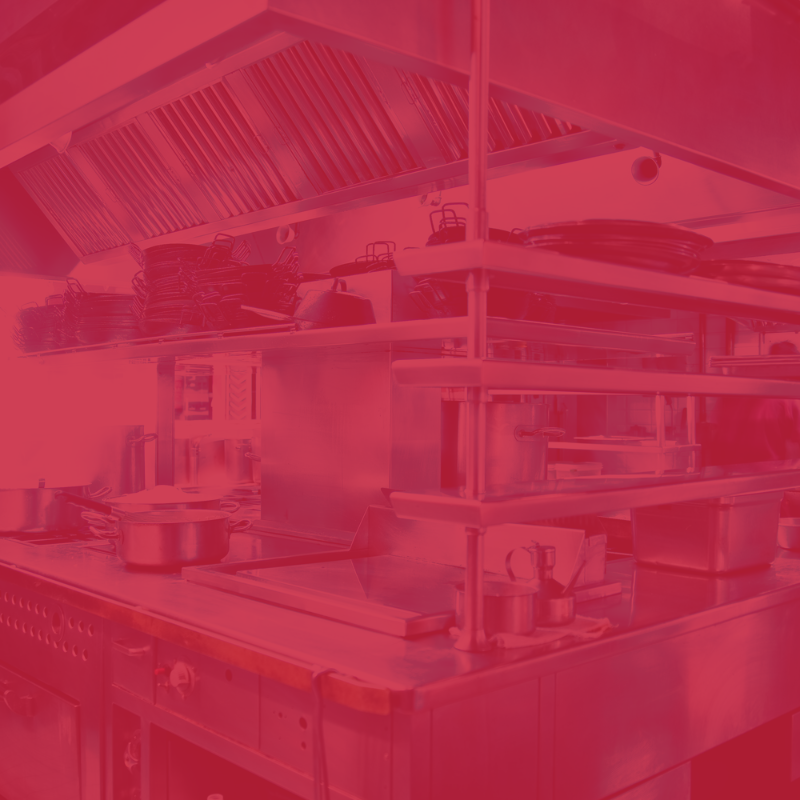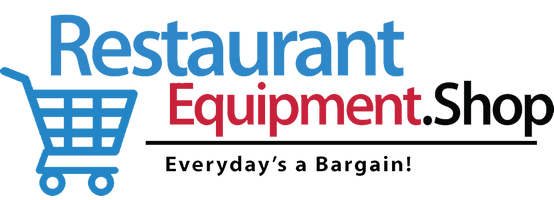
The Pros and Cons of Used Restaurant Equipment vs New Equipment
When you’re starting a restaurant, there’s no doubt that you’re going to need an abundance of equipment to get started. When you’re starting a new business, regardless of the industry, it’s typical to start by walking through the store and purchasing what you need brand new.
It can be tempting to immediately decide that you’re going to purchase all items brand new, and it can be exciting to want to walk through the store and get your items right there, but you should consider all your options first. Although buying all your restaurant equipment new may seem like the only option, buying used restaurant equipment is an option that isn’t considered as often as it should be.
When you first start making lists of the restaurant equipment that you need, things can add up when you’re thinking about the fridges, dishwashers, ovens, freezers, and more. When it comes to buying used equipment instead of brand new equipment for your restaurant, it can save you money, which is often exactly what you need when you’re first starting your business. However, there are also benefits to buying new equipment, so it can be difficult to know which to choose, and first-time owners want to make sure that they explore all their options.
If you’re in this position and wondering whether you should purchase used or new equipment, this article can help you. Here we’ll look at all the pros and cons of used restaurant equipment versus new equipment.
Pros of New Restaurant Equipment
There are many benefits to buying new restaurant equipment and reasons why you may want to consider it for your business. The biggest advantage of buying new restaurant equipment when you start your business is obvious; it’s new.
When you buy things new, you’re guaranteed that they’ll work exactly as they should, which is critical for a well-operating restaurant. Most of the time, there will also be a warranty that comes with purchasing new equipment so that, if for any reason, the equipment doesn’t operate as it should, you can get your money back. Buying new equipment will mean that it’s free from defects and that it will be fully operational from the point of when you get it.
In many cases, when you buy new equipment, it will have a longer equipment lifespan, and in the long run, it’ll last you longer. When you’re first starting with a restaurant, the last thing that you want is equipment breaking down or there being risks of it failing. With equipment that’s bought brand new, there are fewer chances that it will need any repairs at all within the first few years of use. Although this is true, you still want to make sure that you establish a relationship with a trusted repair company that you can depend on if anything does go wrong.
Cons of New Restaurant Equipment
Although there are many advantages to purchasing new equipment, there are also some cons that you want to keep in mind before you make your decision. The biggest, and perhaps the most obvious, disadvantage is that it can be a huge financial burden for your business if you decide to purchase new equipment. This is usually the reason why restaurants think about buying used. Instead, since when they get started with deciding what they need, it usually shrinks their budget. At this point, you want to see if it’s worth the financial investment to purchase new equipment or if you want to go with used restaurant equipment.
Determine the total cost of ownership, everything from how much the new appliances cost to how much the maintenance is. Once you have this information, you can decide if it’s worth the investment that you will be making. It’s also important to remember that you’ll be paying higher initial upfront costs and, in many cases, this equipment will be only slightly newer than the used equipment you can get. You want to decide if it’s worth the money that you’re going to pay and if you can afford it at the time for your restaurant.
Pros of Used Restaurant Equipment
Now that we’ve talked about why new equipment is a good choice for your restaurant, we should also take a look at why you may want to consider used equipment for your business. The same as with new equipment, there are many benefits to opting to purchase used equipment. There are many advantages to buying used equipment for your restaurant and many reasons why you might want to think about it before you opt to buy your restaurant equipment brand new.
The biggest advantage, and the most obvious, is that you’ll save money when you buy used equipment. Since new equipment can be very expensive, you’ll be pleasantly surprised to find that used equipment is considerably less. Many times you’ll be able to find equipment that is almost as good or even as good as the new equipment that you would have bought. It may be a little more work, but you’ll be surprised to find that you can save a lot when you opt to buy used instead, and save money when you’re just starting your business.
Many people have the idea that when they buy used equipment it’ll come damaged, but you want to keep in mind that like new equipment does exist if you’re willing to look for it. You might be able to find equipment that has only been used slightly and still looks new and works fine. It’ll be just like new, only less expensive and having been used previously. If you’re environmentally friendly, it’s also something to consider that you’ll be choosing an option that encourages less waste by buying used.
Cons of Used Restaurant Equipment
Even though there are many benefits to buying used equipment for your restaurant, that doesn’t mean that there aren’t some disadvantages to buying your equipment used. One of the biggest disadvantages of buying used equipment is that most restaurant equipment is sold “as is”. However, occasionally preview days are offered. Some liquidation services, such as restaurantequipment.bid, will liquidate used restaurant equipment that comes directly from operating locations.
If you find out that the equipment doesn't work with your kitchen or that you want to return it for any reason, you may not be able to. When you buy used equipment, there’s always the chance that the appliance could be near the end of its lifespan. You’re taking a risk with how long it’ll last and if it’ll have any major maintenance issues.
There’s also the problem that you’ll likely be purchasing older equipment that is considered outdated. When you’re running a restaurant, you want to offer your customers the best possible results, and if you have outdated appliances, you may not be able to give them the best results. Then, perhaps the most obvious worry when you’re buying a used appliance is that the condition of the equipment is unknown. By deciding to buy used, you could very well just be taking on someone else’s issue and the appliance is below standard.
This is why we always recommend bringing a qualified professional with you when you’re looking at used equipment to look it over and make sure that it’s fully inspected. They’ll inspect it to make sure that everything looks good and to help you determine if it’s a good investment. This way, you’ll be sure that what you’re buying is in good condition and that it’ll last you for years to come.
The Best Option For Your Business Depends On Your Needs
At the end of the day, the decision of whether to buy new or used equipment depends on your business and your needs. There are pros and cons to both options, and it depends on your financial situation and what you need when you’re first starting. If you’re deciding between the two, the best thing that you can do is to make a list of necessary equipment for your restaurant and estimate how much it will cost.
You also need to look at your budget and decide if it’s worth it to spend the money on brand new equipment when you’re first starting your business. There’s a big difference between buying used and new equipment, so make sure that you do your research, get the advice of professionals, and have a thorough list of what you need before you make your decision. It’s entirely up to you, and it specifically depends on your business needs and your financial situation at the time.
